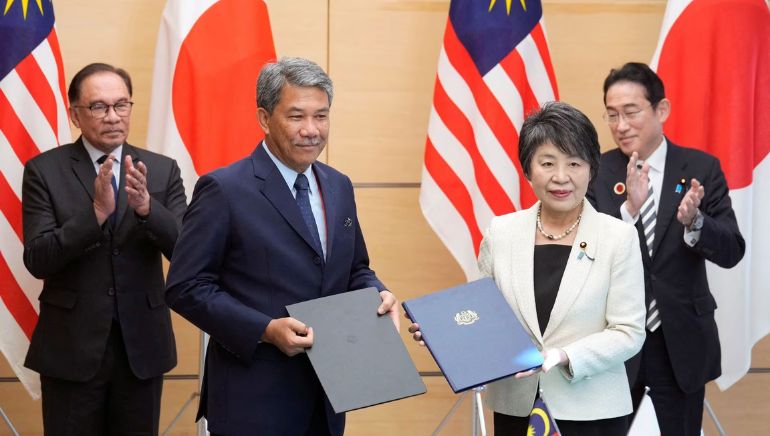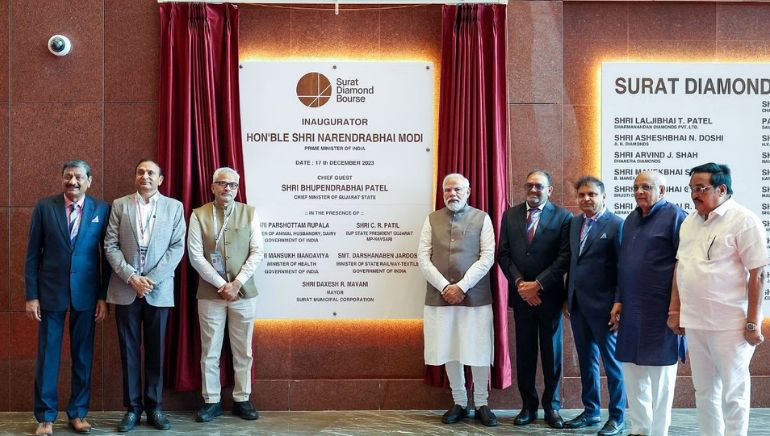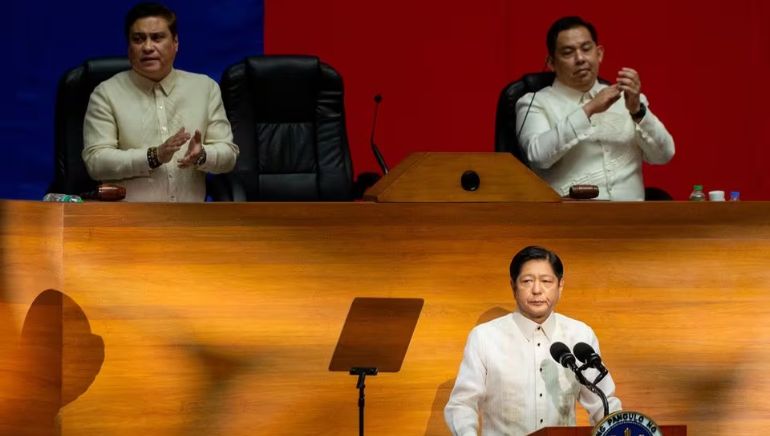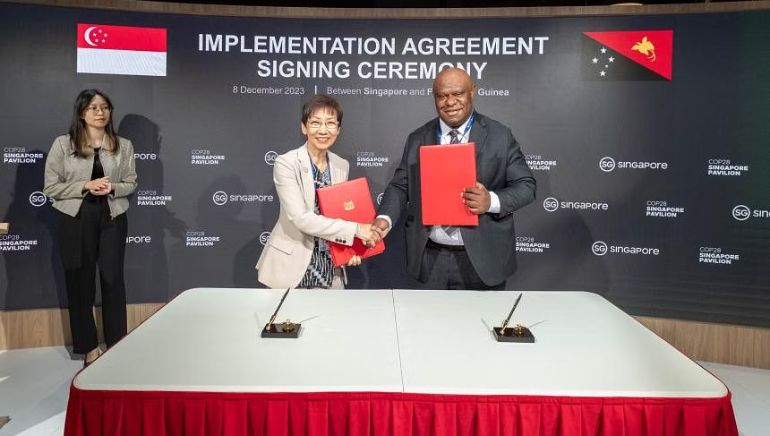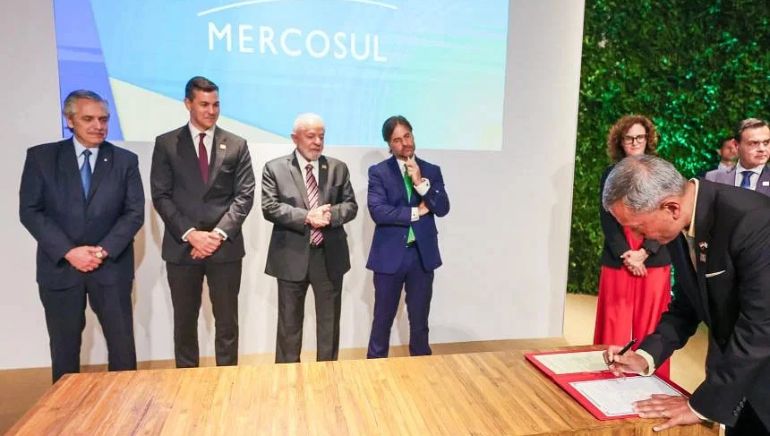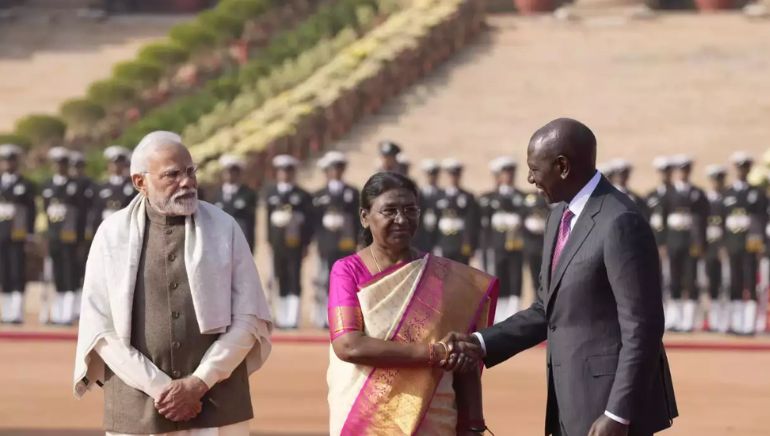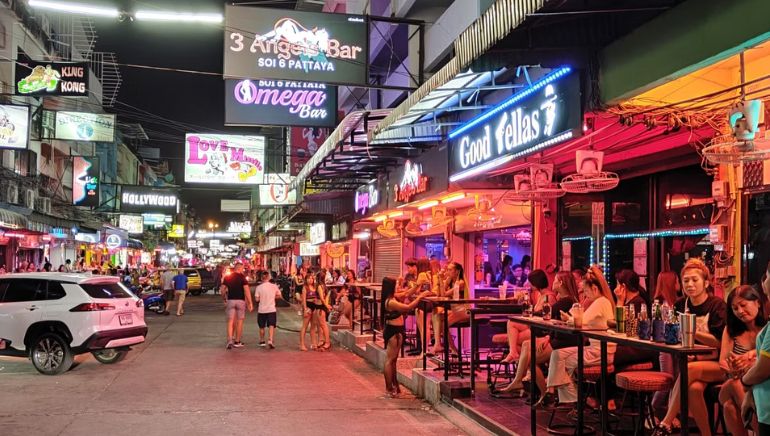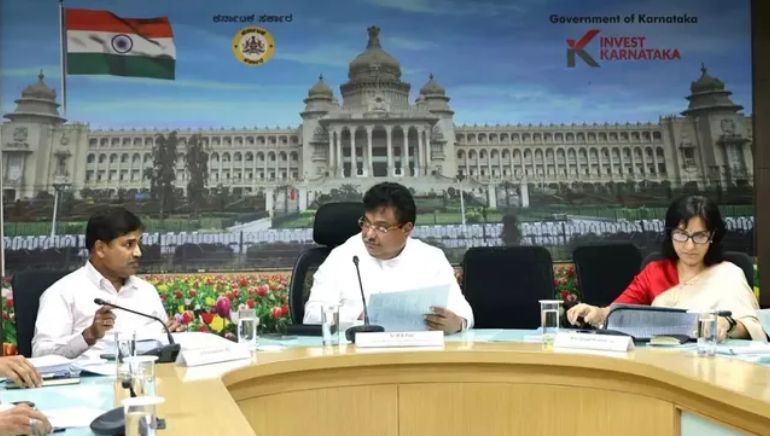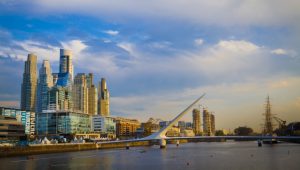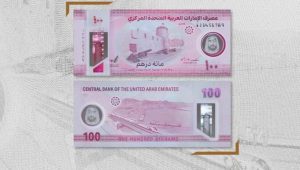In a bid to enhance regional security amid rising tensions in the South China Sea, Japan and Malaysia signed a comprehensive security assistance deal on Saturday. The agreement, celebrated on the sidelines of a Tokyo summit marking 50 years of Japan-ASEAN ties, solidifies the relationship between the two nations.
Under the terms of the deal, Japan will extend a grant of 400 million yen ($2.8 million) to Malaysia, focusing on boosting maritime security capabilities. The aid package includes the provision of essential equipment such as rescue boats and supplies aimed at fortifying Malaysia’s maritime defenses.
Japanese Prime Minister Kishida expressed his satisfaction with the deepening of ties, heralding the elevation of the Japan-Malaysia relationship to a “comprehensive strategic partnership,” according to a statement from Japan’s foreign ministry.
This move follows similar security agreements between Japan and the Philippines and Bangladesh earlier this year. It aligns with Japan’s broader initiative announced in April to provide financial assistance to developing countries to strengthen their defense capabilities.
As tensions escalate in the South China Sea, where ASEAN members, including Malaysia, the Philippines, Vietnam, Indonesia, and Brunei, contest territorial claims with China, Japan’s strategic support aims to counterbalance an increasingly assertive China. The three-day summit in Tokyo seeks to bolster ASEAN’s international standing and facilitate diplomatic relations, particularly in managing ties with major players like China.
The assistance deal, along with Kishida’s planned individual meetings with each ASEAN leader during the ongoing summit, underscores Japan’s commitment to regional stability and collaborative efforts to address shared security concerns among Asian nations.





